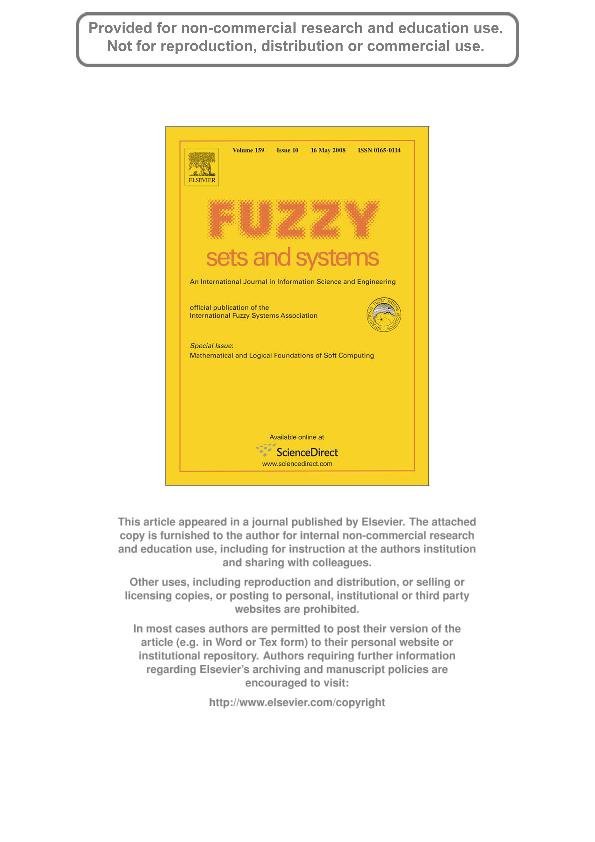Artículo
A logic programming framework for possibilistic argumentation: Formalization and logical properties
Fecha de publicación:
16/05/2008
Editorial:
Elsevier Science
Revista:
Fuzzy Sets and Systems
ISSN:
0165-0114
Idioma:
Inglés
Tipo de recurso:
Artículo publicado
Clasificación temática:
Resumen
In the last decade defeasible argumentation frameworks have evolved to become a sound setting to formalize commonsense, qualitative reasoning. The logic programming paradigm has shown to be particularly useful for developing different argument-based frameworks on the basis of different variants of logic programming which incorporate defeasible rules. Most of such frameworks, however, are unable to deal with both explicit uncertainty and vague knowledge, as defeasibility is directly encoded in the object language. This paper presents possibilistic defeasible logic programming (P-DeLP), a new logic programming language which combines features from argumentation theory and logic programming, incorporating as well the treatment of possibilistic uncertainty. Such features are formalized on the basis of PGL, a possibilistic logic based on Gödel fuzzy logic. One of the applications of P-DeLP is providing an intelligent agent with non-monotonic, argumentative inference capabilities. In this paper we also provide a better understanding of such capabilities by defining two non-monotonic operators which model the expansion of a given program by adding new weighed facts associated with argument conclusions and warranted literals, respectively. Different logical properties for the proposed operators are studied.
Archivos asociados
Licencia
Identificadores
Colecciones
Articulos(CCT - BAHIA BLANCA)
Articulos de CTRO.CIENTIFICO TECNOL.CONICET - BAHIA BLANCA
Articulos de CTRO.CIENTIFICO TECNOL.CONICET - BAHIA BLANCA
Citación
Alsinet, Teresa; Chesñevar, Carlos Iván; Godo, Lluís; Simari, Guillermo Ricardo; A logic programming framework for possibilistic argumentation: Formalization and logical properties; Elsevier Science; Fuzzy Sets and Systems; 159; 10; 16-5-2008; 1208-1228
Compartir
Altmétricas




